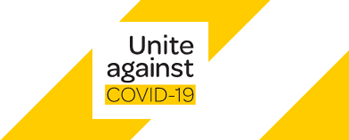What you need to know about
COVID-19 | Click here

What you need to know about
COVID-19 | Click here


Thursday November 2, 2023 08:28
In this two-part report we examine the duties of business owners, directors and senior managers in regard to health and safety at work and then, how best these requirements can be met to identify ways to improve H&S compliance, enhance wellbeing in the workplace and minimise overall risk to adverse events.
The recent trial of the owners of Whakaari (White) Island over the volcanic eruption that killed 22 people and injured many more has no doubt captured the attention of business owners and company directors. There is very likely a concern as to whether they are doing enough to protect their workers, what gaps they have in their knowledge of the health & safety legislation, and what is required of them.
Whakaari Management Ltd (WML) were charged under S. 44 of the Health and Safety At Work Act – 2015 ( HSWA ) with the failing to exercise the necessary due diligence as a director or other officer of WML. While charges against the individual owners have been dismissed owing to lack of evidence, the trial over their company continues.
Business owners, managers or company directors have a legal obligation to make health and safety part of normal daily work activities within the organisation/workplace.
The Reason To Improve
Each week one to two New Zealanders are killed while at work – two a month in the construction industry alone. It is estimated that annually up to 900 people die prematurely from occupational diseases resulting from exposure to hazardous substances. This situation has not significantly changed in the last 10 years and on a per capita basis reflects poorly compared to similar economies overseas.
Legislation
The core piece of legislation governing health and safety practice in New Zealand is the Health and Safety At Work Act – 2015 ( HSWA ).
The Health and Safety At Work – 2015 came into force on the 4 July 2016. It is of note that similar revised UK H&S legislation came into force in 1972 – over 50 years ago, and the Australian law in 1992 – over 30 years. These things require time in order to change behaviours.
HSWA places a primary duty on a person conducting a business or undertaking (PCBU) to ensure, so far as reasonably practicable, the health and safety of its workers, and other workers whose activities they influence or direct. This primary duty extends to ensuring, so far as reasonably practicable, that the health and safety of other persons is not put at risk by the work of the PCBU, including visitors and other people in the vicinity of the workplace.
A PCBU will usually be a business entity, such as a company. However, an individual can be a PCBU, such as a sole trader or self-employed person.
Duties And Liabilities
The legislation places a positive duty on owners/directors – as officers of a PCBU – to exercise due diligence to ensure that the organisation complies with its health and safety duties and obligations.
The term “officers” includes those who hold positions that enable them to significantly influence the management of the organisation. This means that certain senior leaders in an organisation (such as CEOs and General Managers) are also officers and have a due diligence duty.
Health And Safety Authority
Officers are:
Due Diligence
Due diligence requires owners/directors (as officers) to take reasonable steps to understand the PCBU’s operations and health and safety risks, and to ensure that they are managed so that the organisation meets its legal obligations.
Due diligence is defined in section 44(4) of HSWA as taking reasonable steps to:
Directors (and other officers) must exercise the care, diligence, and skill that a reasonable director (or officer) would exercise in the same circumstances. What is considered reasonable will depend on the particular circumstances, including the nature of the business or undertaking, and the director or officer’s role and responsibilities.
All officers, including directors, may seek health and safety advice from experts or others within their organisation, such as managers. Where they choose to rely on this advice, the reliance must be reasonable. Directors (and other officers) should obtain enough health and safety knowledge to ask the right questions of the right people and to obtain credible information.
Officers Liability
Directors/owners and other officers will be personally liable if they breach their due diligence duty. The maximum penalty for a serious breach of the due diligence duty for a PCBU or an officer of a PCBU is imprisonment for up to 5 years and/or a fine of up to $600,000. Insurance cannot be used to pay fines under HSWA.
For a PCBU and its officers the above can appear a daunting task. However, with a systematic approach to health and safety that ensures all requirements are covered, measured, reported and controlled, it is possible to establish an arrangement that provides confidence to everyone involved that they have a safe and healthy work environment.
In part 2 of this report we will explore how best this can be done.
Parts of the information in this newsletter has been derived from guidance documents published by WorkSafe NZ which are available at www.worksafe.govt.nz and parts of the Health and Safety At Work Act – 2015.
If you have concerns around this topic and would like our assistance, please feel free to contact us on 0800 55 33 44.